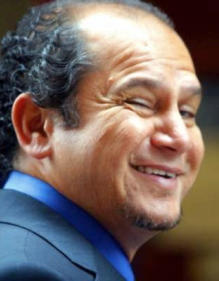
Whenever somebody gets convicted of corruption in South Africa, they seem to get off with a light sentence. Schabir Shaik was only in prison for a few months and Jackie Selebi too. Why do they get such small punishments? What should the punishments be for corruption?
Yours,
Feeling punitive
Dear Punitive,
The punishments we impose for corruption play a central role in deterring future corruption. If potentially corrupt people know they will get off with a light sentence, they are more likely to take the chance of committing corruption than if they know they will be sent to jail for a long time.
From a legislative point of view, the Prevention and Combating of Corrupt Activities Act 12 of 2004 imposes stern penalties for corrupt behaviour. The act permits the High Court to sentence someone to life imprisonment for various forms of corruption. A court can also fine someone up to three times the value of the gratification that was involved in the corruption.
In addition, the Criminal Law Amendment Act 105 of 1997 (better known as the Minimum Sentencing Law) imposes a minimum penalty of 15 years for a first offender convicted of corruption, if the corruption (a) involves more than R500 000; (b) involves more than R100 000 if it was part of a conspiracy; or (c) involves more than R10 000 and was committed by a law enforcement officer. The penalties are even harsher for repeat offenders. To put that in perspective, the penalty for rape without any aggravating factors is only 10 years’ imprisonment. A court can only impose a less severe penalty if there are “substantial and compelling” circumstances warranting it.
On paper, the law is clearly directed at deterring corruption. And our courts have largely imposed these harsh sentences. Both Schabir Shaik and Jackie Selebi were sentenced to the prescribed minimum of 15 years imprisonment. Shaik and Selebi have, however, both been released on medical parole because they are, supposedly, critically ill.
This points to an important weakness in the way we punish the corrupt. It is not only necessary to impose an appropriate sentence; it is also necessary to ensure that those sentences are properly enforced by the Department of Correctional Services. People convicted of corruption will often have strong political connections that they can use to have their punishment lessened. For example, an inmate can be afforded better treatment in a prison or be transferred to a more comfortable or less overcrowded prison. They can be granted parole – including medical parole – earlier than they should have been. Or, they can be pardoned by the president.
Ideally, there should be checks in place to prevent this sort of abuse of the correctional services system. And there are some checks. The parole boards that consider parole are relatively independent. The Correctional Services Act was amended in 2011 to require the minister to appoint a medical advisory board to provide an independent medical report when an inmate applies for medical parole. The Judicial Inspectorate of Correctional Services is mandated to investigate and report on corruption in the prison system.
However, there is still a lot of space for manipulation. The major problem is that it is difficult to identify the corruption. Even if it is identified, there will often be nobody to complain about it. The Judicial Inspectorate is primarily designed to deal with complaints by prisoners. If a prisoner is advantaged by corruption, they are unlikely to complain. And it is not clear that anybody else has a right to complain about the preferential treatment of another inmate, either internally, or before the courts.
• This article was first published in Sunday Times: Business Times

